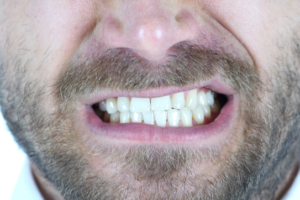Every year millions of people have their third molars, known as wisdom teeth, removed from their jaws. In the United States, its been estimated to be 10 million wisdom teeth extractions per year for a whopping $3 billion. ¹
I get this question a lot: Why do we have teeth that we don’t need???
It’s really a great question. The short answer is, we need all of our teeth. We just don’t have room in our mouths because our jaws are shrinking!² This shrinkage can lead to a number of complications including impacted third molars, crowded front teeth, airway issues, and temporal-mandibular joint (TMJ) disorders. This is great news for the dentist and specialists who can profit massively.
Wait…did I just say our jaws are shrinking? It’s true. Epigenetics play a huge role in how we look and how our body functions. This is different from genes, genetics, or DNA. I’ll write a blog post on epigenetics in the future.
For now, just know the following:
DNA is the blueprint, absent any major genetic issues, for a perfect human body, including jaw size and teeth.
Epigenetics play a major role in determining your physical outcome
Healthy parents are extremely important during your developmental stages.
Jaw growth is possible in both children and adults. ³
Form contributes to function, but function can also contribute to form. What we eat matters! How we breathe matters! If we eat highly processed foods (soft foods) it will not allow for proper formation of the maxilla (upper jaw), mandible (lower jaw), and associated structures. If we habitually breathe through our mouths our faces will not develop to their fullest genetic potential.
In other words, a modern diet and poor breathing habits may cause you to have an underdeveloped jaw structure.
Now that you have an idea of the forces that could shrink your jaws, lets talk about the opposite. Lets talk about how we can reverse the outcome and increase your jaw size. Remember, this is important so that we can have room for ALL of our teeth, including wisdom teeth, and have straighter teeth.
Your wisdom teeth are like spare tires in your mouth. Don’t just remove them if there isn’t a solid reason behind the decision.
Orthotropics. Ever heard of it? Its okay if you haven’t. It’s not mainstream yet. Orthotropics helps increase the size of the upper and lower jaws so that all teeth may fit. This allows adequate space for the airway too. It’s amazingly simplex.
Many dentists and orthodontists are trained to think that major jaw growth is not possible after puberty. This is simply not true. More practitioners are beginning to learn about orthotropics and its benefits.
When is it a good idea to remove your wisdom teeth? In my opinion, there are only a few good reasons to do so.
- A highly informed individual wants their wisdom teeth removed. This is rare, but I honor patient autonomy.
- Infection, large decay or other major complications associated with the wisdom teeth.
- Damage to the adjacent teeth
Complications of Wisdom Teeth Extractions
Pain & Swelling
Trismus (Tightened muscles closing the jaw)
Hemorrhage
Alveolar osteitis (dry socket)
Periodontal damage (adjacent teeth)
Injury to TMJ
Soft tissue damage or infection
Malaise
Osteonecrosis of the jaw
Temporary numbness
Permanent numbness
Fracture of the jaw bones
Fracture of adjacent teeth
Sinus exposure or infection
Anesthesia complications
At the end of the day keep this one thing in mind. Would you buy a new car and immediately remove and throw away the spare tire? Hopefully you say no to this. Your wisdom teeth are like spare tires in your mouth. Don’t just remove them if there isn’t a solid reason behind the decision.



